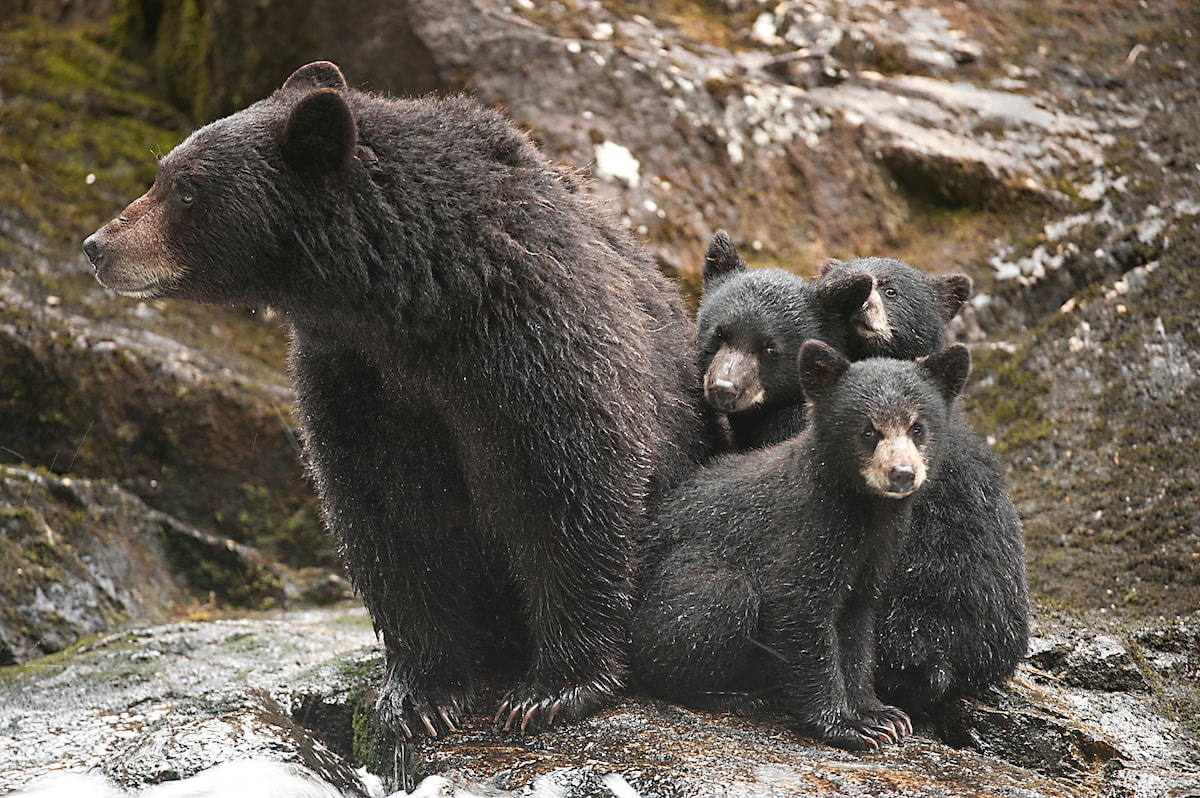Owning a home in Southern California isn’t just a dream for humans. Apparently, the bears want in on the market too.
Just ask residents and city officials in Sierra Madre, who in the last few years have seen their furry, four-legged neighbors amble out of the forest and barge into their cars, kitchens and living rooms as though the humans were just keeping the place warm for them.
“This is a new phenomenon,” Sierra Madre City Attorney Aleks Giragosian said. “Something interesting happened in the past two years. And like Jurassic Park, the bears have learned how to open doors. I don’t know how they learned it. I don’t know how they’re teaching each other, but they’re opening car doors, too.”
Bear sightings are nothing new for Sierra Madre and the other communities in the foothills of the Angeles National Forest, but in the last few years the bears have become bolder in their hunt for food.
In 2020, there were about 100 reports of bear sightings in Sierra Madre but no reports of break-ins into homes, authorities said. Last year, those numbers jumped to 380 sightings and 50 break-ins.
“It was in the last five years that they’ve really become a nuisance,” homeowner Sara Alden told CBS2 about one ornery ursine that had recently broken into her family’s home and tore up the place. “They’re getting more brazen, they really are.”
The behavior is a result of humans moving deeper into the wildlands where bears reside, said Erinn Wilson, the South Coast Region regional manager with the California Department of Fish and Wildlife.
She told the Sierra Madre City Council in May that some bears are “no harm, no foul” bears that simply wander into neighborhoods and can be easily scared away, others are habituated and adjust to human routines such as which days trash cans are put out so they can find food, and others are depredation bears, which are unafraid and can kill livestock, damage property and pose a public safety threat.
Sierra Madre has a mix of no harm, no foul bears and habituated bears, Wilson said.
But there was one bear that had been a particularly bad neighbor of late.
Sometime recently, it found an empty house hidden among the narrow, tree-lined streets on Alta Vista Drive that enjoy scenic views overlooking the San Gabriel Valley and moved in. While a BMW sits in the driveway gathering dust and overgrown shrubs hide the felled trees littering the yard, the bear apparently made itself at home.
Neighbors began to complain about break-ins and a terrible smell emanating from the home. Since 2019, city officials have sent the homeowner multiple violation notices for the property including about the tenant bear, to no avail. Numerous attempts to reach the homeowner by The Times were unsuccessful.
“This morning we had to call the police as the bear broke down our fence” and broke into a neighboring home that had been red-tagged, a resident wrote to the city’s code enforcement staff last month. “We have also observed the bear climbing in and out of the window of the shed on the property and believe it may be living in there.”
The bear required a different type of hazing than the others.
With laws barring government officials from entering homes without a warrant, the city had little recourse beyond papering the home with violations. So last month, they got creative.
The city filed an application for an inspection and abatement warrant and got it signed by a Los Angeles County Superior Court judge. The application included neighbors’ complaints and several photos of the property in their application, including an image of the bear leaning against a wood railing at the home.
On Aug. 15, staff with the California Department of Fish and Wildlife arrived at the home and found bear tracks, a broken window and scratch marks on the windowsill “consistent with black bear marks,” wrote Lt. Jonathan Garcia with Fish and Wildlife. There were indications the bear had been living there, including feces, rotten food, wrappers and containers.
The smell from the outdoor shed and the home “were emitting odors associated with organic matter that are attracting varmints and black bears,” Garcia wrote.
The home has since been boarded up, Giragosian, the city attorney, said. Sierra Madre will bill the homeowner for the work done on the property including tree trimming and cleanup.
Wildlife officials ask people to not feed wild animals and to remove ripe vegetables and fruits from the ground. Residents can also install motion sensitive lights around their properties and secure crawl spaces to avoid leaving an open invitation for wild animals.
One or fewer people are killed by black bears each year in the United States, with a population of over 900,000 black bears across the country, according to Fish and Wildlife.
But in response to the numerous bear encounters in the surrounding foothill communities, residents have since started their own bear watch groups to respond to the growing problem.
“The residents are kind of torn, because Sierra Madre has a lot of people who love wildlife and they want to protect the bears,” Giragosian said. “There are also residents who are afraid for their lives.”
The bear that was living on Alta Vista Drive has not been seen since.
This article by Nathan Solis, Los Angeles Times was first published by Phys.org on 28 September 2024. Lead Image: Credit: Unsplash/CC0 Public Domain.
What you can do
Help to save wildlife by donating as little as $1 – It only takes a minute.







Leave a Reply